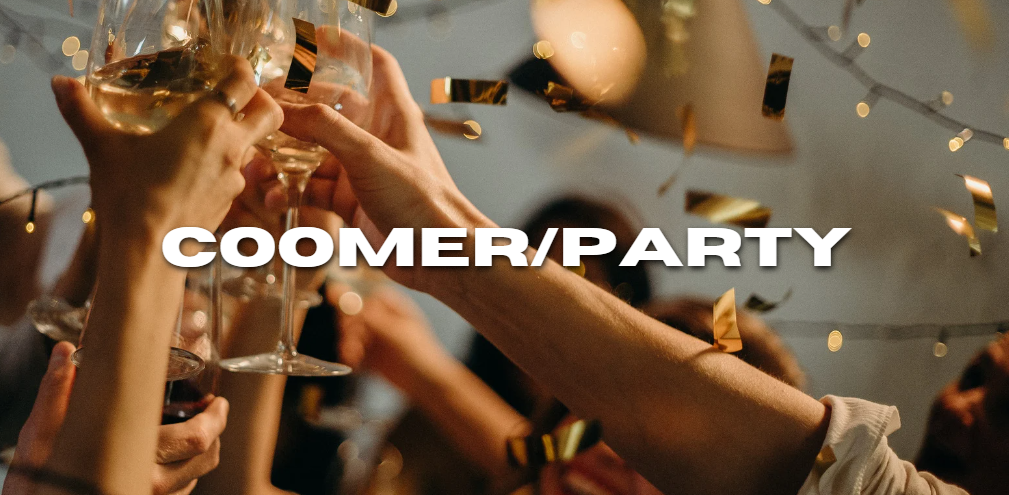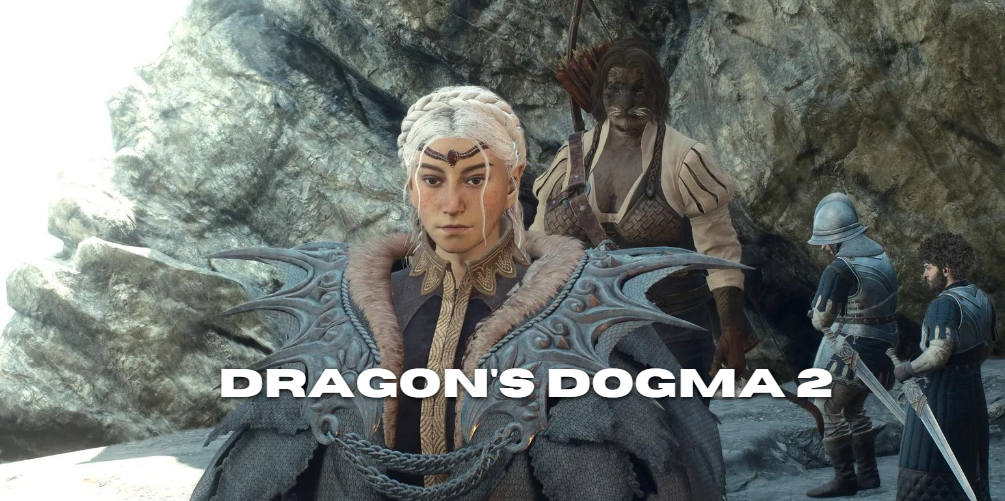The term “coomer/party” has gained significant attention in recent years, becoming a viral sensation across various online platforms.
This article delves into the origins, implications, and cultural impact of “coomer/party,” providing unique insights and analyses that go beyond existing information. By sensibly integrating the keyword “coomer/party,” we aim to create a comprehensive and informative resource that ranks highly in search engine results.
Contents
- 1 Understanding Coomer/Party: Origins and Definitions
- 2 The Cultural Impact of Coomer/Party
- 3 Psychological and Social Implications
- 4 The Ethical and Legal Dimensions
- 5 Addressing the Coomer/Party Phenomenon: Strategies and Solutions
- 6 The Future of Coomer/Party: Trends and Predictions
- 7 Coomer/Party: FAQs
- 7.1 1. What does “coomer/party” mean?
- 7.2 2. How did the “coomer” meme originate?
- 7.3 3. What are the psychological implications of the “coomer/party” lifestyle?
- 7.4 4. How can someone address internet addiction related to “coomer/party”?
- 7.5 5. What are the ethical considerations related to “coomer/party”?
- 7.6 6. How can technology influence the future of “coomer/party”?
- 8 Conclusion
Understanding Coomer/Party: Origins and Definitions
What is Coomer/Party?
The term “coomer” originates from internet culture and is often associated with memes and online communities. It is a slang term used to describe someone who engages in excessive consumption of adult content, leading to a compulsive and unhealthy behavior. “Party,” in this context, can refer to a gathering or event. When combined, “coomer/party” represents a concept that has been explored in various online forums and social media platforms, often with humorous or critical undertones.
Historical Context
The “coomer” meme first appeared around 2019 and quickly spread across platforms like Reddit, 4chan, and Twitter. It typically features an exaggerated, caricatured image of a man with certain stereotypical traits associated with excessive adult content consumption. The “party” aspect emerged as users began to satirize the notion of a collective gathering of individuals embodying the “coomer” stereotype.
The Cultural Impact of Coomer/Party
Online Communities and Memes
The “coomer/party” phenomenon has had a significant impact on online communities. It has become a recurring theme in memes, with users creating and sharing content that highlights the absurdity or consequences of the “coomer” lifestyle.
Memes and Satire
Memes play a crucial role in the spread of “coomer/party.” They often use humor and satire to critique behaviors associated with excessive adult content consumption. These memes can range from lighthearted jokes to more pointed criticisms, reflecting the diverse perspectives within online communities.
Social Commentary
Beyond humor, “coomer/party” also serves as a form of social commentary. It highlights issues related to internet addiction, mental health, and the impact of adult content on individuals and society. By bringing these topics into the public eye, the “coomer/party” phenomenon encourages discussions about responsible content consumption and the importance of mental well-being.
Psychological and Social Implications
Internet Addiction
One of the key issues associated with “coomer/party” is internet addiction. Excessive consumption of adult content can lead to compulsive behavior, negatively affecting an individual’s daily life, relationships, and mental health.
Signs of Internet Addiction
- Compulsive Use: An inability to control or reduce the amount of time spent consuming adult content.
- Neglect of Responsibilities: Ignoring personal, professional, or social responsibilities due to excessive internet use.
- Withdrawal Symptoms: Experiencing anxiety, irritability, or depression when unable to access the internet.
Mental Health
The “coomer/party” lifestyle can have detrimental effects on mental health. It can lead to feelings of shame, guilt, and low self-esteem, as well as more severe conditions like depression and anxiety.
Addressing Mental Health Issues
- Seeking Professional Help: Consulting with mental health professionals can provide strategies and support for managing compulsive behaviors.
- Support Groups: Joining support groups can offer a sense of community and understanding, helping individuals overcome their struggles.
- Healthy Habits: Developing healthy habits, such as regular exercise, hobbies, and social interactions, can improve overall mental well-being.
The Ethical and Legal Dimensions
Ethical Considerations
The “coomer/party” phenomenon raises several ethical questions regarding content consumption, personal boundaries, and societal norms. It prompts discussions about the ethical implications of consuming adult content and the responsibilities of content creators and platforms.
Ethical Questions
- Consent and Exploitation: Ensuring that all content is created and distributed consensually and ethically.
- Impact on Relationships: Understanding how excessive content consumption can affect personal relationships and societal dynamics.
- Responsibility of Platforms: Considering the role of online platforms in regulating and monitoring content to prevent harmful behaviors.
Legal Aspects
While the “coomer/party” concept itself is not inherently illegal, it intersects with various legal issues related to online content, privacy, and intellectual property.
Key Legal Issues
- Content Regulation: Laws and regulations governing the creation, distribution, and consumption of adult content.
- Privacy Rights: Protecting the privacy and personal data of individuals who consume or create content.
- Intellectual Property: Ensuring that content creators’ rights are respected and protected from unauthorized use.
Addressing the Coomer/Party Phenomenon: Strategies and Solutions
Promoting Responsible Content Consumption
Promoting responsible content consumption is crucial in addressing the issues associated with “coomer/party.” This involves educating individuals about healthy habits and the potential risks of excessive content consumption.
Educational Campaigns
- Awareness Programs: Implementing programs that educate individuals about the risks of internet addiction and the importance of responsible content consumption.
- Digital Literacy: Enhancing digital literacy to help individuals navigate online content safely and responsibly.
Support and Resources
Providing support and resources for individuals struggling with compulsive behaviors is essential. This includes access to professional help, support groups, and online resources.
Professional Help
- Therapists and Counselors: Offering therapy and counseling services to address mental health issues related to compulsive behavior.
- Support Groups: Creating and promoting support groups where individuals can share their experiences and receive support from peers.
Encouraging Healthy Alternatives
Encouraging healthy alternatives to excessive content consumption can help individuals find balance and improve their overall well-being. This includes promoting activities and hobbies that provide fulfillment and enjoyment.
Examples of Healthy Alternatives
- Physical Activities: Engaging in physical activities like sports, exercise, and outdoor adventures.
- Creative Pursuits: Exploring creative pursuits such as art, music, writing, and crafting.
- Social Interactions: Building and maintaining meaningful social interactions and relationships.
The Future of Coomer/Party: Trends and Predictions
Evolving Internet Culture
As internet culture continues to evolve, the “coomer/party” phenomenon is likely to undergo changes. New trends and perspectives may emerge, influencing how this concept is perceived and discussed.
Potential Trends
- Increased Awareness: Growing awareness about the risks of excessive content consumption and the importance of mental health.
- Shifts in Content Creation: Changes in content creation practices to promote ethical and responsible consumption.
- Community Initiatives: Development of community initiatives aimed at supporting individuals and promoting healthy behaviors.
Technological Advancements
Technological advancements will also play a role in shaping the future of “coomer/party.” Innovations in digital platforms, artificial intelligence, and virtual reality could influence how content is consumed and regulated.
Impact of Technology
- Content Regulation: Enhanced tools and algorithms for monitoring and regulating online content.
- Mental Health Support: Technological solutions for providing mental health support and resources.
- Virtual Experiences: Evolution of virtual experiences and their impact on content consumption behaviors.
Coomer/Party: FAQs
1. What does “coomer/party” mean?
“Coomer/party” is a term that combines “coomer,” a slang term for someone who excessively consumes adult content, with “party,” suggesting a collective gathering or event. It often appears in memes and online discussions with humorous or critical undertones.
2. How did the “coomer” meme originate?
The “coomer” meme originated around 2019 and quickly spread across platforms like Reddit, 4chan, and Twitter. It typically features an exaggerated image of a man with traits associated with excessive adult content consumption.
3. What are the psychological implications of the “coomer/party” lifestyle?
The “coomer/party” lifestyle can lead to internet addiction, mental health issues like anxiety and depression, and negative impacts on personal relationships and daily life.
Addressing internet addiction involves seeking professional help, joining support groups, developing healthy habits, and promoting responsible content consumption.
Ethical considerations include ensuring consent and ethical practices in content creation, understanding the impact on relationships, and considering the responsibilities of online platforms in regulating content.
6. How can technology influence the future of “coomer/party”?
Technological advancements can enhance content regulation, provide mental health support, and evolve virtual experiences, influencing how content is consumed and regulated.
Conclusion
The “coomer/party” phenomenon offers a fascinating glimpse into the complexities of internet culture, mental health, and ethical considerations. By exploring its origins, cultural impact, psychological implications, and future trends, we gain a deeper understanding of this viral sensation.
As we navigate the digital age, promoting responsible content consumption, supporting mental health, and addressing ethical concerns will be crucial in shaping a healthier and more informed online community. This comprehensive guide to “coomer/party” aims to provide valuable insights and analyses that go beyond existing information, offering a resource that ranks highly in search engine results and serves the needs of readers in the USA and beyond.




